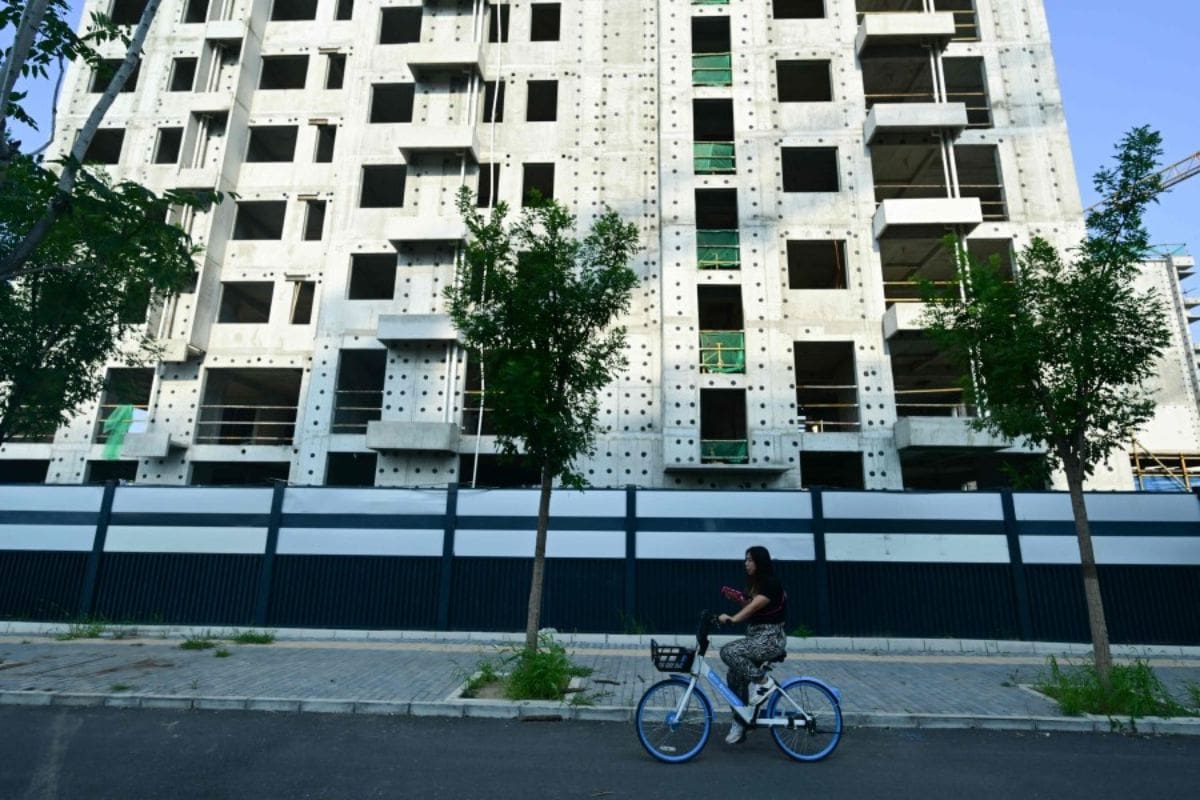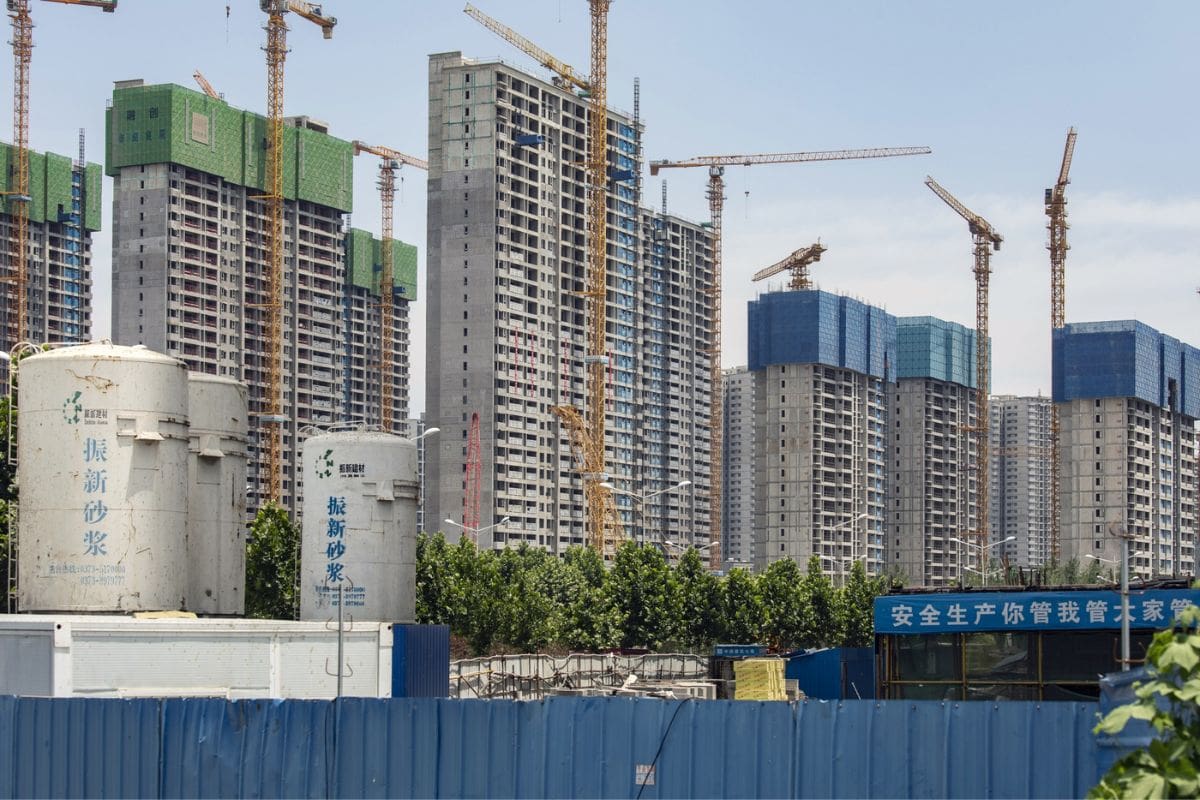China’s Property Market Defies: Despite the Chinese government’s efforts to revive the property market through policy boosts, the sector seems to be marching to its own drum, defying the expected price rebounds.
As prices continue to decline persistently, questions arise about the effectiveness of the measures taken and the underlying factors driving this unexpected trend. From major cities like Beijing to smaller urban centers, the property market’s behavior is raising eyebrows and causing experts to reassess their predictions.
The implications of this divergence between policy expectations and market realities could have far-reaching consequences for China’s economy and beyond.
China’s New Home Prices Show Signs of Stabilization in Major Cities
In major Chinese cities, the housing market is displaying initial signs of stabilization despite the persistent nationwide downward trend. While the overall property market in China continues to face challenges, recent data reveals a glimmer of hope for major urban centers.
January saw a marginal improvement in new home prices, with a decrease of 0.3% compared to December’s 0.4% decline. This slight shift suggests that government measures aimed at boosting demand and relaxing purchase restrictions are starting to take effect, particularly in tier-one cities like Shanghai. The smaller decline in prices in these key areas, attributed to supportive policies such as lower down-payments, indicates a potential turning point in the market.
Investors and homebuyers alike are closely monitoring these developments, hoping that this trend towards stabilization will continue and eventually lead to a recovery in China’s property sector.

Also Read: China’s property market: Banks Tread Cautiously on New Measures
Mixed Signals in China’s Property Market: Shanghai Bucks the Trend
Shanghai’s unexpected surge in home prices amidst China’s overall property market decline sends shockwaves through the real estate industry, challenging conventional market expectations. While other major cities like Beijing, Guangzhou, and Shenzhen are grappling with smaller home price declines, Shanghai stands out with a notable month-on-month increase of 0.4%. This divergence defies the downward trend observed in tier-two and tier-three cities, where weak buyer sentiment continues to prevail.
The resilience of Shanghai’s property market in the face of broader market challenges raises questions about the underlying dynamics driving this anomaly. Could it be attributed to unique local factors, speculative investor activity, or a shift in government policies? As industry players try to make sense of Shanghai’s exceptional performance, one thing is clear: the property market landscape is far from uniform, with mixed signals confounding analysts and investors alike.
Shanghai’s defiance of the prevailing trend serves as a stark reminder that predicting market movements in China’s real estate sector remains a complex and uncertain endeavor.
Economic Analysts Caution on Prolonged Property Market Challenges
Economic experts sound the alarm on the enduring challenges plaguing China’s property market, warning of prolonged turbulence ahead. Nie Wen from Hwabao Trust cautions against optimism, suggesting that the road to recovery for the property market will be long and arduous.
The persistence of home price declines paints a bleak picture, with Nie projecting a recovery period of over a year. The recent uptick in household loans, as indicated by central bank data, does little to alleviate concerns, as these funds are more likely being channeled into personal expenses rather than real estate investments.
As the property market grapples with these obstacles, analysts urge investors and homebuyers to brace themselves for a protracted period of uncertainty and instability. The cautionary stance adopted by economic analysts serves as a stark reminder of the challenges ahead, emphasizing the need for a cautious and strategic approach in navigating the complexities of China’s property market.

News In Brief
China’s property market defies government efforts for a rebound, showing persistent declines nationwide. While major cities like Shanghai exhibit signs of stabilization, the overall trend remains downward. January saw a marginal improvement with a 0.3% decrease in new home prices, hinting at policy impacts in tier-one cities. Shanghai’s unexpected 0.4% increase challenges market expectations, highlighting regional disparities. Analysts caution against optimism, projecting a prolonged recovery period of over a year. Economic experts emphasize the uncertainty ahead, urging investors to adopt a cautious approach in navigating China’s complex property market landscape.
Our Reader’s Queries
Q1 What is the property policy in China?
A In China, a standardized official process for registering land-use rights and property ownership is lacking. All claims to land interests must be documented in the government’s official register, serving as the authoritative proof of ownership.
Q2 What caused China housing market crash?
A The ongoing financial crisis in the Chinese property sector from 2020 to 2024 has been triggered by challenges faced by Evergrande Group and other developers. This crisis has emerged due to extensive construction and the implementation of new Chinese regulations imposing limits on the debt of these companies.
Q3 How much has the price of houses dropped in China?
A In December, home prices experienced the most rapid decline in nine months, witnessing a year-on-year drop of 0.4% following a 0.2% decrease in November. Across tier-one, tier-two, and tier-three cities, prices in the home resale market fell year-on-year for the seventh consecutive month among all 70 cities.

